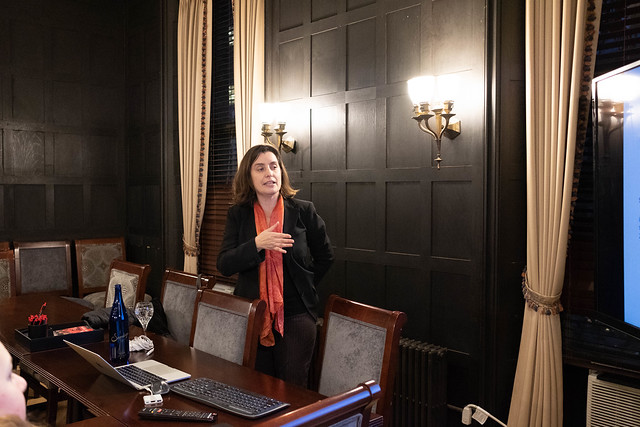Event Highlights: The End of a Crisis? Labor Market Reforms and Performance in Southern Europe
By Aislinn O’Brien, Candidate for Bachelors of the Arts in International Relations and Political Science
To cap off the Center for the Study of Europe’s “Works in Progress” lecture series, Associate Professor of Political Science Sofia Perez shared her insightful findings from analyzing political reforms instituted in Southern Europe in response to the 2008 economic downturn. Perez shared with her audience that she largely views this topic as an extension of some of her prior research, particularly an article she co-authored entitled “The Political Economy of Austerity in Southern Europe”. Her work in progress extends her prior research by focusing specifically on what exactly the impact of labor market reforms implemented in different Southern European countries in response to the crash meant for their respective economies.
Perez walked attendees through the case studies of Greece, Spain, Portugal, Italy, and to a lesser extent Ireland to explain her findings. Largely, Prof. Perez focused on the topic of internal devaluation, which was a common response adopted by these countries. Internal devaluation, according to Perez, was founded around, first, a problematic assumption that austerity policies could be adopted and would, in practice, have expansive economic impacts, increasing the flow of capital in recovering economies and, second, the problematic choice to institute labor market reforms such as decreasing employment protections, which decreased wage flexibility. She detailed the mechanisms of how exactly these policies impacted their respective economies, ultimately concluding that these reforms successfully achieved internal devaluation and increased exports at large, yet also however, that the number of workers employed, concerningly, broadly decreased due to the fact that policy had shifted the incentives of companies toward preferring automation, in addition to the fact that economic downturn inspired workers to move to other countries within the EU with preferable economic prospects. Perez is now going to look further into what the comparative for these countries may have been had they adopted other policy options that were found to be more successful in other European countries. All in all, a very interesting lecture!

